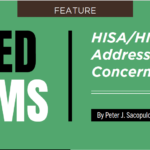Did you know that your online reputation is in the hands of a just a few people? Only 1 out of every 20 patients posts an online review of their physician but nearly half of all patients use the Internet to learn about prospective physicians and other healthcare providers, according to a survey by the Pew Internet and American Life Project. Google yourself. If you don’t like what you see, read on.
Google Alerts
Find out where you stand. Do a simple Internet search to see what comes up when your name or the name of your practice is searched. Type your name, in quotes, in the popular search engines Google and Yahoo. These two sites should encompass the vast majority of things posted on the web. Flip through the first five pages. Hopefully you will find nothing negative. Next, stay informed by subscribing to a service that will inform you when new content is posted about you. Google offers this general service, “Google Alerts”, for free.
Another important step to protect your reputation is to, own your name. Purchase your name or practice’s domain name. You want to control this. The last thing you want is a disgruntled patient or a competitor owning a domain name based off of your name. This allows a website to be created that could harm your practice. Spend the small amount (usually less than $20 a year), to secure a domain name from a site, such as Go Daddy.com.
What if I Find a Major Online Problem? It can happen. Imagine, it takes just a few minutes for a disgruntled patient, former employee, competitor, ex-spouse or upset neighbor to post wicked, nasty comments about you all over the Internet. It hurts and it’s clearly malicious. Practical and legal constraints make it difficult to deal with malicious posting. From a practical point of view, if a posting is anonymous, a significant amount of effort will be needed to learn the true identity of the poster. From the legal perspective, federal laws such as the Communication Decency Act and HIPPA act to limit the range of options a physician has when addressing an online problem.
For example, HIPPA would limit a physician from disclosing medical facts and treatment relating to a patient that has posted a negative comment online. As much as a physician may want to say “Mrs. Jones comments arise more from her psychosis than from my surgery of her breast implants” this would be a bad idea.
Don’t react with emotion to a negative review
It is easy to have a knee jerk reaction and fire away with what you’re thinking with a quick stroke of the keyboard. Hold back that aggression. Nothing ever good comes from a war of words on the web. If the poster is a patient, suggest they call the office so you can personally help them resolve the problem. Stop there. Don’t keep responding. One thing you can do is look for the “Terms and Conditions” section of the website where the comments are posted. If the comments violate the site’s terms and conditions you can e-mail the website and ask that the comments be removed.
Do not post fake reviews
Do not post fake reviews about yourself, and do not have your staff pretend to be happy patients. Although rating sites might appear on the surface to be anonymous, there is very little to nothing anonymous on the internet. IP addresses are captured and can be investigated. There have been numerous suits where federal subpoenas have been issued to secure IP addresses and thus link of a posters identity with their comments. Although the internet and rating sites offer some separation between cause and effect, at the end of the day they will be linked. If this is not enough to deter you (and it should be) consider your medical license. Many medical boards would consider the posting of fake reviews, falsely promoting your general reputation to be actionable. Never facilitate fake or fraudulent reviews.
Professional help with reviews
There are certain professional organizations that will assist your patients in getting the word out about quality medicine that you practice. One firm that specializes in assisting physicians with their online reputation is eMerit. Founded by Dr. Jeffery Segal, eMerit is focused on deputizing a critical mass of patients to post about their experiences with the doctor. eMerit provides an iPad which collects a critical mass of reviews to provide a representative picture of the doctor’s practice. eMerit uses a proactive approach to always have positive content in cyberspace about their clients.
“When a plaintiff’s lawyer or juror searches a defendant doctor online, which prototypical review will help? – Dr.Smith got out of bed at 4 AM to save my mother’s life – or Dr. Smith was an uber-arrogant, money-grubbing, narcissist who dismissed every one of my concerns. You be the judge,” Segal said.
Encourage satisfied patients to write reviews. The more you can populate the web with positive reviews about yourself, the further the negative reviews will slide down the search ladder. Take advantage of the time your patients spend in the waiting room, by giving them access to the web via a tablet device. Ask them to post a review while they are waiting to be seen for a follow up visit. Don’t leave them waiting too long as the review may reflect it.
Rein in employees
Have a basic social media policy for your employees. These policies set appropriate guidelines for online behavior of staff members. A staff member could get in an argument with you and fire away their feelings online. If the online rant creates enough attention, it will gain strength in the search engines. A policy will protect you when the appropriate time comes to discipline or terminate the employee.
Michael J. Sacopulos is the CEO of Medical Risk Institute (MRI) and serves as General Counsel for Medical Justice Services. Additionally, Mr. Sacopulos is the Legal Analyst for several national publications, including Plastic Surgery Practice. He may be reached at msacopulos@medriskinstitute.com.





